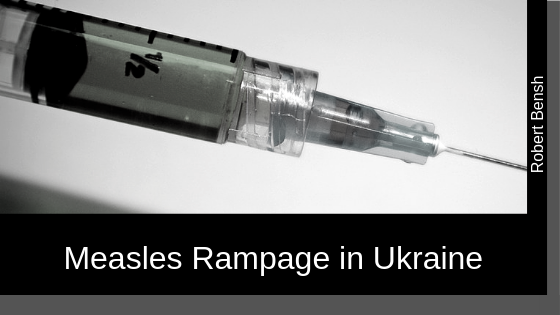Poor Ukraine. The country is riddled with worry regarding the Crimean Peninsula and election discord. As if that wasn’t enough, Ukraine has been a key contributor to one of the most serious measle outbreaks in postvaccine history.
The World Health Organization recently reported that measles cases in Europe tripled, going from 25,500 to almost 83,000 in 2018. What’s more? Over 60% of those cases originated in Ukraine. Lviv has reported the largest number of cases. Rivne, Vinnytsia, Khmelnytsky, and Kyiv round out the top five contributing cities.
Experts believe the outbreak results from and is impacted by the following complications.
Refusal to Vaccinate
The world has seen a surprising uptick in the number of parents that are reluctant or even refuse to vaccinate their children. According to a report published by PMC, vaccine hesitancy is likely the result of four main causes: safety concerns, religious beliefs, personal beliefs, and lack of accurate information from health professionals. The World Health Organization has indicated that anti-vaccination propaganda could be a critical factor in the recent measles outbreaks in Ukraine and similar countries.
Political Infighting
Ukraine’s election situation has also had a major impact on the effectiveness of the government’s ability to adequately distribute vaccines. Lawsuits, both warranted and unwarranted, have severely restricted the capabilities of several high officials in the Ukrainian government. These restrictions, which affected Ukraine’s Health Minister, have impacted vaccine distribution. Officials previously responsible for signing distribution orders no longer have the power to do so.
Fighting Back
The country has taken steps to try and combat this seemingly alarming epidemic. Historically, the country’s government purchased vaccines for distribution to children only. In 2018, however, Ukrainian officials made the decision to approve the order of free vaccinations for adults as well. Although the disease is typically more prevalent in children, a significant number of adult cases have been recorded.
Later in 2018, the United Nations Children’s Fund provided a new batch of vaccinations to Ukraine. The batch consisted of 77,600 doses of what is commonly known as the MMR (measles, mumps, and rubella) vaccine.
A vaccination drive also began in Lviv in mid-February with the intention of administering 50,000 vaccinations. In its first 3 days, the drive administered vaccines to more children than typically receive them in a single month within the area.
